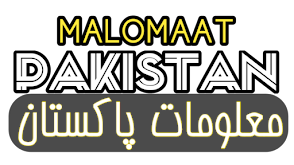Education Loan in Pakistan
Education plays a vital role in shaping the future of individuals and societies. In today's competitive world, higher education has become increasingly important. However, the rising costs of education often pose a financial burden on students and their families. To bridge this gap, education loans have emerged as a valuable resource. This article explores the concept of education loans in Pakistan, including their benefits, eligibility criteria, application process, and frequently asked questions.
Table of Contents
- Introduction
- Benefits of Education Loans
- Eligibility Criteria
- Types of Education Loans
- Application Process
- Repayment Options
- Interest Rates and Charges
- Scholarships and Grants
- Financial Institutions Offering Education Loans
- Tips for Managing Education Loans
- Frequently Asked Questions (FAQs)
- Conclusion
- FAQs After the Conclusion
1. Introduction
Education loans are financial aids provided to students to cover the cost of their education. In Pakistan, education loans are offered by various financial institutions, including banks and government programs. These loans help students pursue their higher education dreams by providing funds for tuition fees, books, accommodation, and other related expenses.
2. Benefits of Education Loans
- Access to Quality Education: Education loans enable students to pursue their desired educational programs at reputable institutions, both within Pakistan and abroad.
- Financial Support: Loans cover tuition fees, living expenses, and other educational costs, relieving the financial burden on students and their families.
- Flexible Repayment Options: Education loans usually come with flexible repayment terms, allowing students to start repaying after completing their education.
- Build Credit History: Timely repayment of education loans helps students build a positive credit history, which can be beneficial for future financial endeavors.
3. Eligibility Criteria
To qualify for an education loan in Pakistan, applicants typically need to meet certain criteria, which may include:
- Pakistani nationality or resident status
- Acceptance into a recognized educational institution
- Minimum academic qualifications
- Co-signer or collateral (depending on the loan provider)
4. Types of Education Loans
Education loans in Pakistan can be broadly categorized into two types: a. Government Education Loans: Offered by government programs and institutions, these loans often come with subsidized interest rates and favorable repayment terms. b. Private Education Loans: Provided by banks and private financial institutions, these loans have varying interest rates and repayment options based on the lending institution's policies.
5. Application Process
When applying for an education loan, students need to follow these general steps: a. Research Loan Providers: Explore different financial institutions offering education loans, compare interest rates, terms, and repayment options. b. Gather Required Documents: Prepare necessary documents, including academic records, admission letter, identification proof, income details, and collateral information (if applicable). c. Submit Loan Application: Complete the application form provided by the chosen loan provider, ensuring all information is accurate and up-to-date. d. Verification and Approval: The lender will review the application, verify the provided details, and make a decision on loan approval. e. Loan Disbursement: Upon approval, the loan amount will be disbursed directly to the educational institution or the student's bank account.
6. Repayment Options
Education loans usually offer flexible repayment options. Some common repayment methods include:
- Moratorium Period: This is a grace period given to students after completing their education, during which they are not required to make loan repayments.
- Monthly Installments: After the moratorium period, students can start repaying the loan through monthly installments over a specific period.
- Income-Based Repayment: Some loan programs offer repayment plans based on the student's income level, ensuring affordability and convenience.
7. Interest Rates and Charges
Interest rates and charges associated with education loans vary depending on the lending institution and the type of loan. It is essential to compare different options and consider factors such as fixed or variable interest rates, processing fees, and any other charges before finalizing a loan.
8. Scholarships and Grants
In addition to education loans, students in Pakistan can explore scholarships and grants to support their educational expenses. Various organizations, both within Pakistan and internationally, offer financial aid based on merit, financial need, and specific fields of study.
9. Financial Institutions Offering Education Loans
Several banks and financial institutions in Pakistan provide education loans, including:
- Habib Bank Limited
- United Bank Limited
- MCB Bank Limited
- Allied Bank Limited
- Bank AL Habib Limited
10. Tips for Managing Education Loans
- Create a Budget: Develop a comprehensive budget to manage your finances effectively and allocate funds for loan repayments.
- Minimize Unnecessary Expenses: Cut down on unnecessary expenses to ensure you have sufficient funds to cover your loan obligations.
- Communicate with Lenders: If you face difficulties repaying your loan, reach out to the lender to discuss possible solutions or restructuring options.
- Explore Loan Consolidation: Consider loan consolidation if you have multiple education loans, as it can simplify repayment and potentially lower interest rates.
11. Frequently Asked Questions (FAQs)
- Can I apply for an education loan without collateral?
- What is the interest rate for education loans in Pakistan?
- Are there any specific eligibility criteria for government education loans?
- Can I repay my education loan before completing my education?
- Are education loans available for studying abroad?
12. Conclusion
Education loans in Pakistan have become a valuable resource for students aspiring to pursue higher education. These loans provide financial support, access to quality education, and flexible repayment options. By exploring different loan options, understanding the application process, and managing loan repayments effectively, students can make informed decisions to achieve their educational goals.
13. FAQs After the Conclusion
- Is it possible to get an education loan for vocational courses?
- How long does it take for an education loan to be approved?
- Can I avail of an education loan if I have a low credit score?
- What happens if I miss a loan repayment?
- Are there any tax benefits associated with education loans in Pakistan?
.jpg)
.jpeg)





.png)


